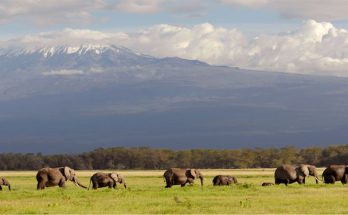 Nigeria has continued to maintain its position as the top producer of oil in Africa according to the Organisation of Petroleum Exporting Countries (OPEC) monthly report for the month of July. Nigeria has reclaimed its top position in June following a six month period trailing Angola due to the activities of Niger Delta militants.
Nigeria has continued to maintain its position as the top producer of oil in Africa according to the Organisation of Petroleum Exporting Countries (OPEC) monthly report for the month of July. Nigeria has reclaimed its top position in June following a six month period trailing Angola due to the activities of Niger Delta militants.
Following meetings between Acting President Yemi Osinbajo and leadership of the Niger Delta region, a ceasefire was agreed and Nigeria returned to uninterrupted oil supply. The restart of the Forcados loading for oil export propelled Nigeria to the top spot in oil production among African countries. NAIJ.com gathered that in the new report released on Wednesday, July 12, Nigeria continued to maintain its top position although there were indication that the renewed production in the country and Libya was affecting the supply and demand balance. Nigeria’s crude oil production increased to 1,733 thousand barrels per day (tb/d) from 1,637 tb/d recorded in the month of June based on secondary sources.
OPEC member states have agreed to a production cut which Nigeria and Libya have been exempted from due to internal crises but with the level of stability recorded, the body is considering including the two countries in the production cap.
According to the report, a “rebound in Libyan and Nigerian production added pressure to an already amply supplied Atlantic Basin due to a massive increase in US shale oil production, while demand from Asia was weaker on account of upcoming refinery maintenance and unfavourable arbitrage economics. The prospect of increased supply also put some pressure on prices.
Nigerian Forcados production ramped up quickly after it resumed in May, increasing to 250 tb/d, creating an overhang as supply surpassed demand. Floating storage also increased amid continuing oversupply in the crude market. Volumes of oil stored at sea are increasing not only around Singapore, but also in the North Sea, with ship-tracking sources indicating a build-up of floating barrels of around 7 mb to 9 mb. Oil futures contracts lost around 7% for the quarter on both sides of the Atlantic.”
The stability recorded in the production of oil in Nigeria has also increased employment for the second month in a row.
“In Nigeria, the Stanbic IBTC Bank Nigeria PMI survey showed a solid increase in private sector output and new orders in June. The index posted 52.9 in June, from 54.4 in May. It also highlighted a return to growth by for-export orders after contracting for most of the past two years. As a result of output increases, firms increased employment during June for the second month in a row,” the report read. Angola recorded an increased production too after it suffered a dip in production although it still continues to trail Nigeria with its 1,668 tb/d production based on secondary sources.




